- Home
- Conn Iggulden
Ravenspur: Rise of the Tudors Page 8
Ravenspur: Rise of the Tudors Read online
Page 8
Richard had been asleep as he rode, he realized, coming awake with a start and looking all around to see if any of the others had noticed. The rain had returned in sheets, chilling him to wakefulness. Edward still rode slightly ahead, slumped and nodding, as if he were already a prisoner. Richard frowned, wanting to call to his brother to put on a better show. He felt his anger return a little warmth to his frozen hands. Dawn was just a cruel time of day, when all flaws are revealed. With a chance to sober up and a week to send out trusted men, Edward might have had his army. Young men hungry for advancement and glory had always sought him out – knights or lords who enjoyed having a strong king on the throne and cared nothing for the sick line of Lancaster. Yet their enemies had caught Edward in a perfect snare, snapping at his heels in such numbers that he could not gather enough men to stand his ground. Like a bear pursued by dogs, he had not been allowed a chance to rest, but had to endure the nips and lunges pressing him on through the rain.
On impulse, Richard dug in his heels, though he was numb with tiredness, his thoughts leaden. His mount had walked all night through mud and drifts of leaves in the darkness. He assumed he had dozed, but could not remember it. His back was the only hot part of him, so sharpened by lack of sleep that when the horse lurched he had to bite his lip rather than cry out.
As he came abreast of Edward, Richard reached to clap his brother on the shoulder. Edward swayed away from the touch, half aware and as pale as Richard had ever seen him. His face had been leaner once, that was true. The flesh had grown over the ten years since Towton, pink and soft like a cloak to hide the harder man he had once been.
‘They will bring me to bay, Richard,’ Edward said softly, his voice barely a breath. ‘If that is what they want. They will run me down and force me to turn and fight and there will be too many. They will force an ending on me. Perhaps you should leave. Warwick has no cause for anger with you. Let me go. Let me stand. I cannot leave England like a thief.’
Edward shook his head, lost in self-pity that was as irritating to Richard as the armies hunting them down. He clenched his jaw as the pain under his shoulder blade flared and the damned thing started to wing and press against his armour. There would be no ease for it then, he knew. It would be weeks before he could sit comfortably once more. He ground his teeth together and found his tongue working at a small piece of one where it had broken free.
Horns blew somewhere behind, a mournful note like a stag calling. A thrill of fear made Richard turn, but in the morning mists there could be no sign of banners. Still, there was a cold horror in being hunted, even for those who had known battle.
As he stared behind him, Richard frowned. In such a place, in cold and rain and caught between violent enemies, he would not have blamed his brother’s followers if they had slipped away in the night. Yet they remained, stubborn as personal oaths and still certain that Edward would come through. Richard thought it was madness as he blinked through blurring rain. He could do much with such loyalty, were it ever his to command.
Earl Rivers rode close by Edward’s shoulder, with his usual eye for Woodville advancement, Richard did not doubt. There was one who would be at Edward’s side until the last breath, just in case a title or a fortune needed a new owner.
The thought was depressing. Though neither of the two York men had announced it as a plan, they were running east then towards the port of Bishop’s Lynn, the final decision coming closer with every milestone. With just eight hundred men, the land was lost. Yet if Edward took sail, it would be an ending in humiliation, on a bitter sea. There would be no more titles or great hunts after that. No York, no Gloucester. Their enemies would have triumphed and the house of Lancaster would rule once more, as if their cousins had never cast them down. Richard shook his head at the thought of the poor broken mute who would wear the crown. They should have killed King Henry, for all his foolish innocence. Warwick could not have used a corpse for his throne.
Richard’s horse stumbled. The animal was exhausted and could fall. Had he been asleep again? Edward was a dozen paces ahead of him and Richard reached up to slap himself awake in stinging blows. He had ridden with almost no rest for three days … no, four. This was the fourth day. Some had fallen behind, out of sight, but Richard was almost eighteen years old and he would not fail his brother, the king. He would not.
They had begun to pass between a row of ancient thorn hedges, overgrown so that they loomed and stole what little light there was. To the west, horns sounded again, closer; to the east, for the first time, Richard could smell the sea. He found tears springing from him at the thought of leaving. He had to remove a gauntlet to rub his eyes clear, keeping his head low so that no one else could see. As he glanced up though, he saw that he was not the only one. They pushed their horses on for the last mile down to the docks. Edward seemed listless and dull-eyed, too downcast to do anything but stare miserably at the morning sun.
The fishing crews had already gone out and the port of Lynn was quiet. No one seemed to know what to do in their tiredness, their minds made lead. Hundreds of horsemen milled around, talking in low voices and always looking up for those who pursued. Richard glanced to his brother, knowing Edward should have had some word for them. They had not deserted the king, to the end. Yet Edward sat bowed over his saddle, lost and sullen and far from that place.
With a groan at his tortured muscles and stiff joints, Richard dismounted. The pain was just about unbearable and he wanted to curl up in a doorway and sleep. Instead, he peeled off his cloak and left the thing to drip down the flanks of his overheated horse. Richard staggered as he approached a merchant vessel and hailed the master. The man was there to oversee the loading of cargo. He had observed the arrival of the weary band of soldiers and riders with barely hidden fear.
‘In the name of King Edward, we demand safe passage,’ Richard said. It could not be for all. Eight hundred would need a fleet even if they had a day or two for loading. He wanted Edward to dismiss the men, to say a few fine words and then get on board. His body hurt terribly and he was so tired even death had become enticing, as a chance to just rest.
Like a pale ghost, Richard stood blinking at the captain. In reply, the man took a step back, shaking his head before he could even speak and holding up empty hands.
‘I am just a trader, my lord. I want no new enemies. I have broken no laws. Please, leave me to my business.’
‘I will not ask again,’ Richard said wearily. He dared not look behind, though his back crawled at the thought of Warwick’s men spilling on to the quays. ‘Instead I will cut your heart out and leave you dead on this dock. My name is Richard Plantagenet, Duke of Gloucester. My duty is to preserve the king’s safety. Do not doubt my intention.’
He knew Edward had come to stand beside him by the way the merchant looked up, then nervously at the white rose of York embroidered on both their tunics. Edward too had left his cloak behind. As well as the symbol of York, his tunic was set on the breast with seed pearls in the design of a sun in flames. The merchant stared at it with wide eyes.
‘May I send the horses on board?’ Edward asked. The man could only nod mutely. Edward gestured to Lord Rivers and the man began issuing sharp commands, driving the animals to the ramp. The horses clattered on to the deck and the merchant winced at the sound. Richard clapped him on the shoulder.
‘There are traitors close behind us, captain. If you have not cast off and retreated out of bowshot by the time they reach this dock, I do not doubt they will set your ship ablaze with arrows dipped in oil. It is what I would do.’
Richard turned then to his brother. Edward still loomed, but some vital spark had been taken from him. He was red-eyed as he met Richard’s gaze.
‘Dismiss your men, Edward. We cannot take more than a few.’
Without another word, Richard climbed the ramp to the deck. Behind him, he heard Edward take a breath. When he addressed them, it was without flourish or booming call. He spoke as a man rather than a king.
‘You have brought me safe to this place,’ he said. ‘You have my thanks. God willing, I will seek you out once again and I will reward you for your loyalty. Until then, go with God, my brothers.’
It was all that had held them on the docks and they bowed and remounted, trotting away in every direction. The poor Earl of Worcester would surely have been taken by then, miles behind the rest.
Edward watched the loyal men depart, until there were just a few of his lords remaining with their servants and guards. A dozen men, no more. They walked their mounts on to the ship, leaving Edward to stare at the country he was losing.
Ropes were untied that bound them to the shore. The ramps were pulled in and the sail run up on to the mast. A yard of water appeared between the wooden rail and the stone dock, then two and they were easing away.
‘Where is your home port, our destination?’ Richard called. The captain was practically weeping at the sight of the bales he’d left behind on the quay. The man stared at him, not daring to give voice to his anger at his turn of fortune. Richard of Gloucester felt like striding across the deck and strangling him where he stood. A man could suffer greater losses than a mere ship’s cargo. Something of that strong emotion in his gaze made the captain look down.
‘Picardy, my lord. France.’
‘No longer,’ Richard shouted over the increasing breeze. ‘Set your rudder and sail for Flanders, northern coast. We have friends there still. And look cheerful! You have played a fine part today. Your little ship holds the king of England.’
The captain bowed in response, not that he had any choice at all. If any of his crew had dared to resist, Edward’s remaining knights and lords were still fighting men, for all their hunger and weariness.
‘Flanders, my lord, as you say.’
The land retreated and, for the first time in days, Richard relaxed, settling into the motion of the merchant cog. Flanders in the north, with Luxembourg to the south. Below those, the duchies of Bar and Lorraine – and then Burgundy itself. He pictured them all in his mind’s eye, all disputed territory. Edward had only one ally over the Channel: Duke Charles of Burgundy, avowed enemy of the French king, who ruled from Flanders to his heartland. The duchy had made huge gains while the old French king was weak. Richard rather envied the man his position.
Overhead, the sun was a smudge of light through the clouds, a weak thing that could not warm either brother as they stared at the green English coast, blurring in the distance.
‘Earl Warwick came back, Brother,’ Richard called to him. ‘Are you a lesser man?’
To his pleasure, he saw Edward consider it, his eyebrows rising in surmise. Richard chuckled aloud. For all the failures and disaster they had suffered, there was still something joyous about the sense of a live ship under them, of the salt spray and the morning.
It was a joy that faded quickly when Richard began to belch and feel a sort of clammy sickness steal over him, made worse with each rise and plunge of the ship. After only a short time, his stomach heaved up into his throat and he rushed for the rail, guided backward and downwind by exasperated sailors. He spent the following day and night lashed to the stern, lolling over grey, rolling waves, helpless as a child and sicker than he had ever known was possible.
6
Margaret of Anjou could sense the rise in her status in a thousand ways. It showed in the deference of King Louis’s courtiers, men and women who spent their lives with a fine appreciation for the power and connections of those around them. For too long, she had been one of a hundred little moules of the royal family. She had heard the word whispered by snide clerks and the fat daughters of French lords. Mussels clung to the belly of ships in clusters, or grew on rocks and gaped for their food like young birds in a nest. She did not know if the comparison stung all the more because of the truth of it.
Her father was still alive, to her daily irritation. Others of his generation had passed sweetly away in their sleep, surrounded by loved ones. René of Anjou remained, made thinner by age, but still a great white toad into his sixties. Though he lived in the castle at Saumur, he had not invited his daughter to join him there. In her private moments, Margaret could admit that if he had, there was a chance she would have smothered him, so perhaps it was not a poor decision. René had offered her a broken old house on the Saumur estate, a cottage fit for a charcoal burner, without even a roof. Perhaps he had intended it as a mark of his disfavour; he had sent her out into the world to marry an English king – and she had come home with a son and little else beyond the clothes on her back.
The thought made anger blaze in her even then, after years. How strange to have the French king show her more mercy and kindness than her own father! They called King Louis the Universal Spider, for all his clever plans and his schemes. Yet he had visited a stipend on Margaret and allowed her to take rooms at the Louvre Palace in his capital, complete with the servants whose manners had changed so abruptly over the last month. She and her son had been little moules on his ship of state, it was true. Yet Warwick had kept his word and her husband had been freed from the Tower.
‘And Henry wears the crown once more,’ she whispered to herself. It was not just the answer to her prayers, it was the result of years of work. She inclined her head, staring out of a window lined in gold leaf, each delicate flake pasted on by a master who did no other work. She could see her own reflection as she focused more closely. Time had stolen the youthful bloom from her skin, clawing at her. She smoothed her hair with a palm as she examined herself, but each day required a little more artistry with paint and powder – and even then her teeth had either been drawn or grown brown. She snorted to herself, irritated at the signs of a weakness she did not feel. She was in no pain, which was a blessing. Forty was the beginning of old age, especially for one who had seen and lost so much in the quarter century she had given to England. Yet she had been given another throw in return.
Even after so long, she did not know for certain that she could trust Warwick.
‘Show me,’ she had said, when he made his promises, imperious and unbending. His father had been killed by her men, that was what troubled her and made her fear. Salisbury had fallen together with York – and though she’d felt only triumph at that moment, it had been her greatest failure. In bringing down the fathers, she had unleashed the sons.
Could Warwick ever forgive? He had no love for her, she understood that much. The bare truth seemed to be that he had no other choice, now that he had fallen out with Edward and his precious, traitorous house of York. He said he wished to undo the pain and grief he had caused. As if that was ever possible.
Margaret sniffed, the first sign of the winter colds that plagued her each year for months. A life was lived like paths forking in the deep forest. Each choice was made and a man or woman had to go on, with no opportunity to return and find a way back to some happier time. All they could do was stumble deeper and deeper in, blind and weeping.
Yet Warwick had promised to free Henry of Lancaster, the true king of England – and he had. He had promised to put a crown on Henry’s bowed head and her spies swore he had done so. That was why the courtiers who had sneered at her faded finery now looked abashed. Her husband was once again the king of England; her enemies were hunted down. She raised her head a fraction further, feeling the strain in her neck. She had been bowed down, for too long. She could look at herself in a glass, the odd doll of her reflection staring steadily back – and feel no shame.
All Warwick had asked was that his remaining daughter be married to her son. Margaret had laughed when he’d first broached the idea. His oldest daughter was already married to George of Clarence. Seeing a second girl wed to Lancaster would give Warwick a son-in-law in both camps. Some bloodline boy of his could even be king of England when they were all gone. His ambition was greater than she had ever known and Margaret could only sigh at the things she could have told her younger self. The paths all lay behind, the decisions made, for good or ill.
Her s
on entered the room at the far end, his spurred boots muffled on the carpets. Servants bowed as he appeared and again, Margaret saw that they were suitably respectful. Her beautiful young Edward was once more Prince of Wales.
‘Have you heard the news, Mother?’ he called in fluent French as soon as he laid eyes on her. Margaret had heard it all hours before her son, of course, though she still shook her head to allow him the joy of telling it.
‘My father has been crowned once again in Westminster. It is all over Paris, Maman! They say Edward of York has run off somewhere in the north, but he has no more than a few hundred with him. He will be hunted with dogs, they say – and torn apart.’
‘It is magnificent,’ Margaret breathed. She felt tears come and she knew her eyes were shining with them. To her pleasure, Edward came and took both her hands in his. He was well made, with a look more of his grandfather than his father, so she had told him a thousand times. That man had taken the war to the French heartland, defeating them at Agincourt with strength and courage and rage and arrows. This boy would have pleased the battle king, Margaret was certain. Great lines could skip a generation.
Her Edward was taller than his father, though not as tall as the giant of York who bore the same name, more was the pity. From the time her son had learned to talk, he had listened to a thousand tales of loss from her, when there was no one else to see her weep. He loved his mother, and in his youth he simply wanted to make it right once more, to uproot the bad vine on the throne. England had failed her, after all. Prince Edward had worked harder than any man Margaret had ever known to build skill and strength as a knight, though of course it had fallen to the French king to actually make him one.
He stood like a young bull across the shoulders, deep-chested and clear-eyed, his health and seventeen years of perfect youth written on his every movement. She felt tears spill on her cheek and wiped roughly at them. A mother’s pride could be overwhelming, even for one who had seen too much of loss.

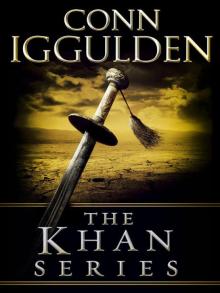 The Khan Series 5-Book Bundle
The Khan Series 5-Book Bundle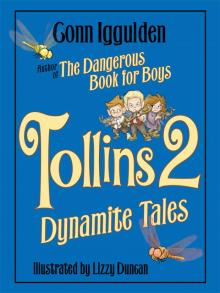 Tollins 2: Dynamite Tales
Tollins 2: Dynamite Tales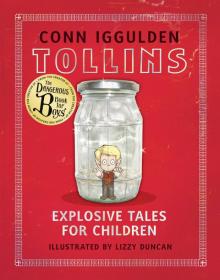 Tollins: Explosive Tales for Children
Tollins: Explosive Tales for Children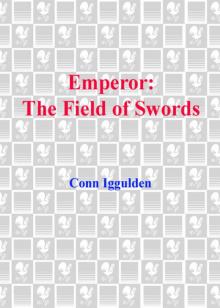 The Field of Swords
The Field of Swords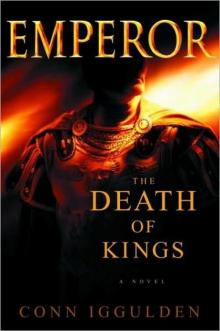 The Death of Kings
The Death of Kings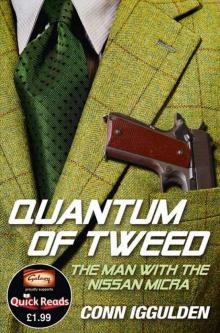 Quantum of Tweed: The Man With the Nissan Micra
Quantum of Tweed: The Man With the Nissan Micra Bones of the Hills
Bones of the Hills Genghis: Birth of an Empire
Genghis: Birth of an Empire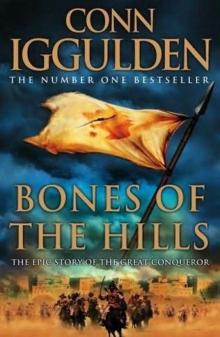 The Gates of Rome
The Gates of Rome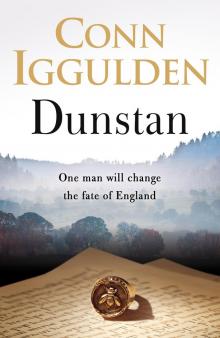 Dunstan
Dunstan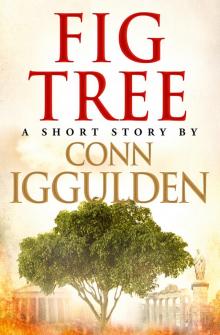 Fig Tree
Fig Tree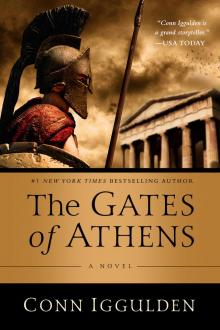 The Gates of Athens
The Gates of Athens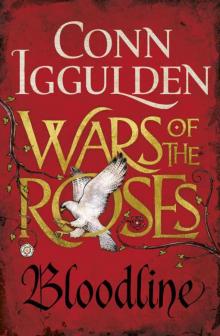 Stormbird
Stormbird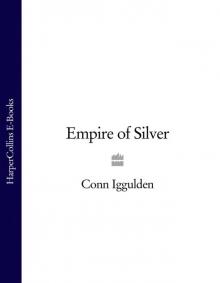 Khan: Empire of Silver
Khan: Empire of Silver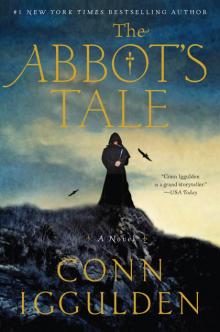 The Abbot's Tale
The Abbot's Tale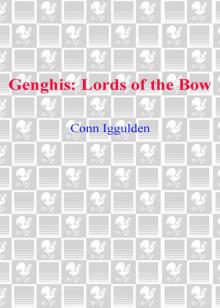 Gengis: Lords of the Bow
Gengis: Lords of the Bow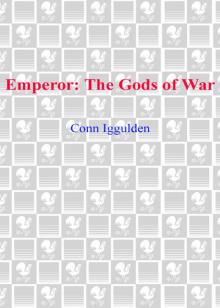 The Gods of War
The Gods of War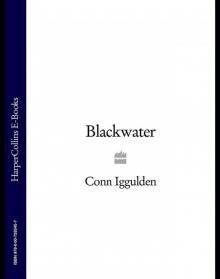 Blackwater
Blackwater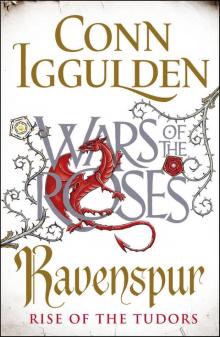 Ravenspur: Rise of the Tudors
Ravenspur: Rise of the Tudors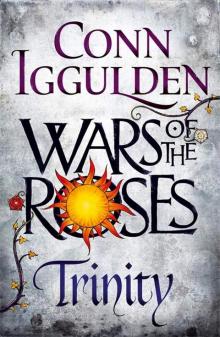 Wars of the Roses: Trinity (War of the Roses Book 2)
Wars of the Roses: Trinity (War of the Roses Book 2) The Gods of war e-4
The Gods of war e-4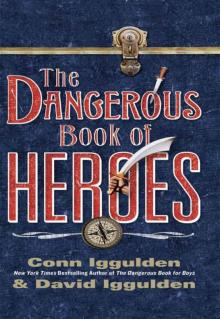 The Dangerous Book of Heroes
The Dangerous Book of Heroes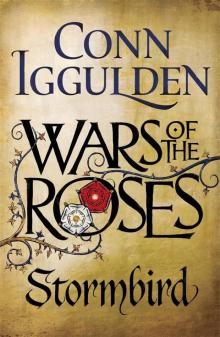 Stormbird wotr-1
Stormbird wotr-1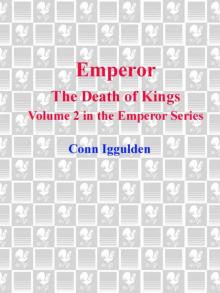 Emperor: The Death of Kings
Emperor: The Death of Kings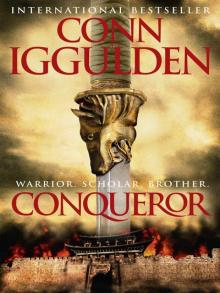 Conqueror (2011) c-5
Conqueror (2011) c-5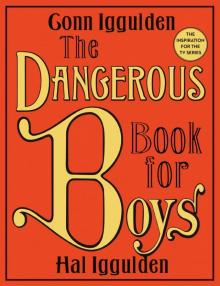 The Dangerous Book for Boys
The Dangerous Book for Boys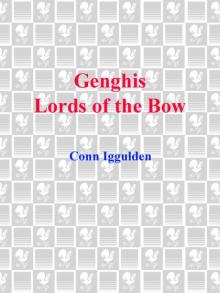 Genghis Lords of the Bow
Genghis Lords of the Bow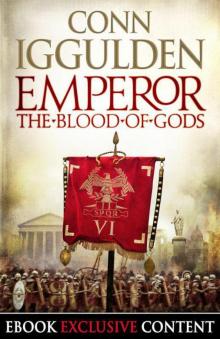 Emperor: The Blood of Gods (Special Edition) (Emperor Series, Book 5)
Emperor: The Blood of Gods (Special Edition) (Emperor Series, Book 5)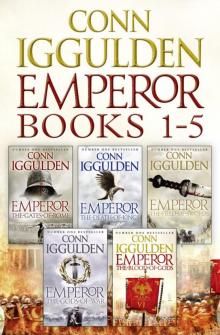 The Emperor Series: Books 1-5
The Emperor Series: Books 1-5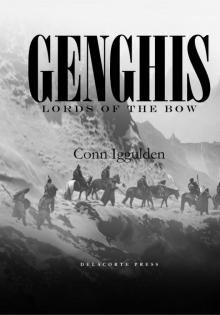 Lords of the Bow c-2
Lords of the Bow c-2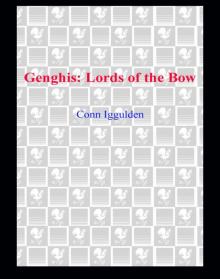 Lords of the Bow
Lords of the Bow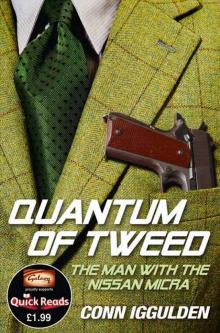 Quantum of Tweed
Quantum of Tweed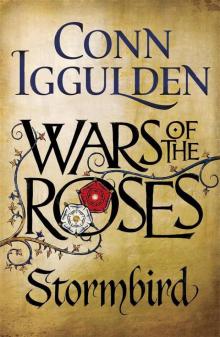 Wars of the Roses 01 - Stormbird
Wars of the Roses 01 - Stormbird Empire of Silver c-4
Empire of Silver c-4 Birth of an Empire
Birth of an Empire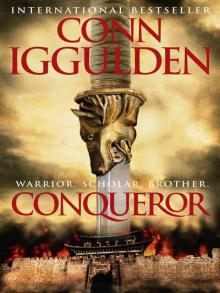 Conqueror (2011)
Conqueror (2011)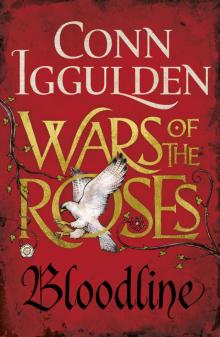 Wars of the Roses: Bloodline: Book 3 (The Wars of the Roses)
Wars of the Roses: Bloodline: Book 3 (The Wars of the Roses)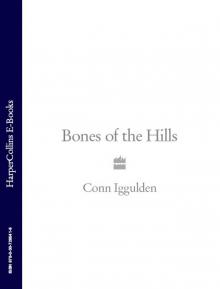 Bones Of the Hills c-3
Bones Of the Hills c-3 Empire of Silver
Empire of Silver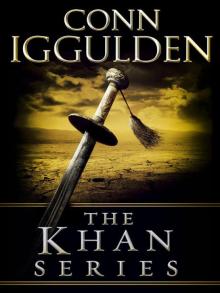 The Khan Series 5-Book Bundle: Genghis: Birth of an Empire, Genghis: Bones of the Hills, Genghis: Lords of the Bow, Khan: Empire of Silver, Conqueror
The Khan Series 5-Book Bundle: Genghis: Birth of an Empire, Genghis: Bones of the Hills, Genghis: Lords of the Bow, Khan: Empire of Silver, Conqueror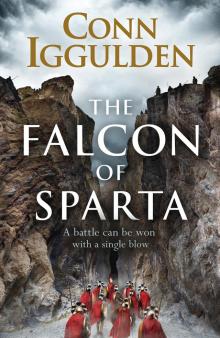 The Falcon of Sparta
The Falcon of Sparta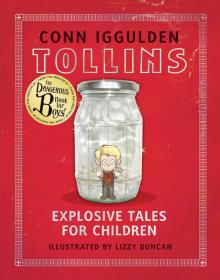 Explosive Tales for Children
Explosive Tales for Children